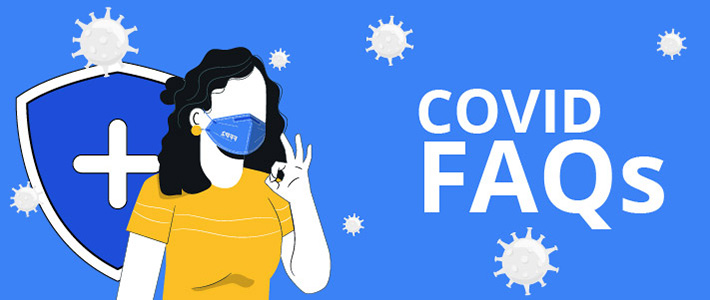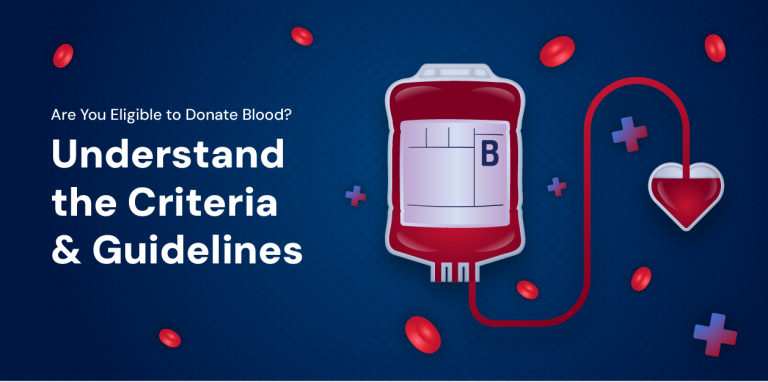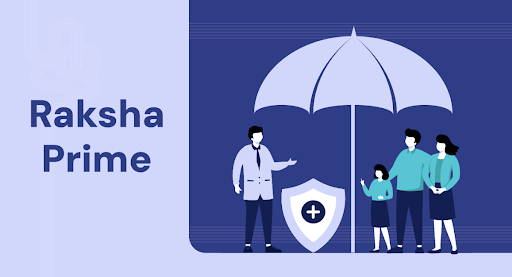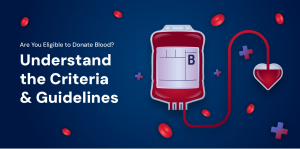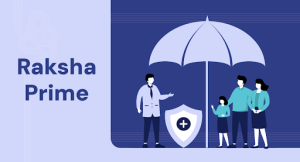Dear Reader,
As we deal with this pandemic together, we, at Medi Assist, take this opportunity to share with you our understanding of the Omicron Variant that was first reported to WHO from South Africa on 24 November 2021.
We have compiled a set of FAQs that tell you more about the disease and how Doctors often treat this infection. Please make sure that you consult your doctor.
The literature attached is only a compilation of globally accepted guidelines. Nothing in this document is proposed as a line of treatment.
Overview
The Omicron Variant was first reported to WHO from South Africa on 24 November 2021. In recent weeks, infections have increased steeply, coinciding with the detection of the variant. The first known confirmed infection was from a specimen collected on 9 November 2021.
This variant has a large number of mutations, some of which are concerning. Preliminary evidence suggests an increased risk of reinfection with this variant compared to other VOCs (Variant of Concern). The number of cases of this variant appears to be increasing in almost all provinces in South Africa. Current SARS-CoV-2 PCR diagnostics continue to detect this variant. Several labs have indicated that one of the three target genes is not detected for one widely used PCR test (S gene dropout or S gene target failure). This test can therefore be used as a marker for this variant, pending sequencing confirmation. Using this approach, this variant has been detected at faster rates than previous surges in infection, suggesting that this variant may have a growth advantage.
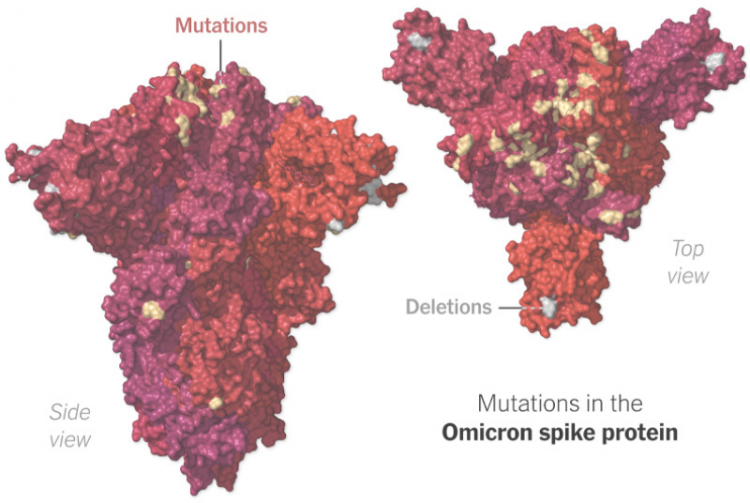
- How severe is the Omicron Variant? It is not yet clear whether infection with Omicron Variant causes more severe disease than infections with other variants. Preliminary data suggests increasing hospitalization rates in South Africa, but this may be due to increasing overall numbers of people becoming infected rather than a specific infection with the Omicron Variant.Initially reported infections were among university students – younger individuals who tend to have the more mild disease – but understanding the level of severity of the Omicron Variant will take days to several weeks. All variants of COVID-19, including the Delta Variant that is dominant worldwide, can cause severe disease or death, particularly for the most vulnerable people; thus, prevention is always key
- Does the Omicron Variant cause different symptoms? There is no information to suggest that Omicron causes different COVID-19 symptoms from other COVID-19 variants.
- How transmissible is the Omicron Variant? According to WHO, it is not yet clear whether Omicron Variant is more transmissible (e.g., more easily spread from person to person) than other variants, including Delta. The number of people testing positive has risen in South Africa affected by this variant. Still, epidemiologic studies are underway to understand if it is because of the Omicron Variant or other factors
- Can the Omicron Variant target an already infected person from Covid-19? Preliminary evidence suggests there may be an increased risk of reinfection with Omicron Variant (i.e., people who have previously had COVID-19 could become reinfected more easily with Omicron), compared to other variants of concern, but the information is limited. More details on this will become available in the coming days and weeks.
- How effective is the vaccine against the Omicron Variant? Current vaccines remain effective against severe disease and death. WHO is working with technical partners to understand the potential impact on our existing countermeasures, including vaccines. Vaccines remain critical to reducing severe disease and death, including against the dominant circulating variant, Delta.
- Are the current tests effective in detecting the infection? The widely used PCR tests continue to detect infection, including infection with Omicron Variant, as we have seen with other variants. Studies are ongoing to determine whether there is any impact on other types of tests, including rapid antigen detection tests.
- Is the current treatment effective? Current treatment will still be effective for managing patients with severe COVID-19. Other treatments will be assessed to see if they are still as effective given the changes to parts of the virus in the Omicron Variant.
- How can an individual protect against Covid-19? The most important thing you can do is reduce your risk of exposure to the virus. To protect yourself and your loved ones, make sure to:
- Wear a mask that covers your nose and mouth. Make sure that your hands are clean when you put on and remove your mask.
- Keep a physical distance of at least 1 meter from others. Avoid poorly ventilated or crowded spaces.
- Open windows to improve ventilation indoors. Wash your hands regularly.
- Cough or sneeze into a bent elbow or tissue.
- When it’s your turn, get vaccinated. WHO-approved COVID-19 vaccines are safe and effective.
- Are children more likely to contract the Omicron Variant? Research is ongoing into Omicron’s transmissibility, and we will update you as more information becomes available. However, people who are mixing socially and those who are unvaccinated are more susceptible to contracting COVID-19.
Source:
WHO
https://www.who.int/news/item/26-11-2021-classification-of-omicron-(b.1.1.529)-sars-cov-2-variant-of-concern https://www.who.int/news/item/28-11-2021-update-on-omicron
UNICEF
https://www.unicef.org/
MOHFM
https://www.mohfw.gov.in/pdf/GuidelinesforInternationalarrivalsdated30thNovember2021.pdf https://www.mohfw.gov.in/pdf/ListofCountriestobereferredtoincontextofGuidelinesforinternationalarrivalsdated28thNovember2021updatedon30112021.pdf
CDC
https://www.cdc.gov/media/releases/2021/s1126-B11-529-omicron.html
Department of Health, Australian Government
https://www.health.gov.au/
Disclaimer
This information has been taken from relevant sources, however, we require you to please check the guidelines from the government and health authorities for regular updates on this variant and take all precautionary measures on a regular basis.

